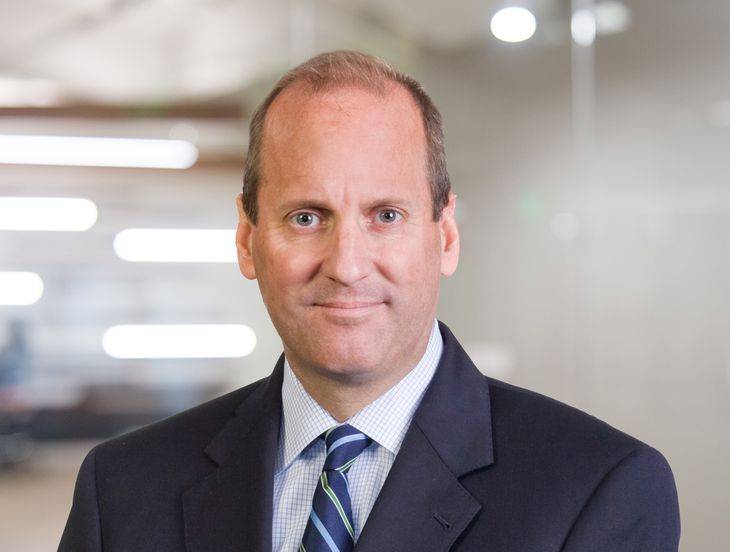Fisher Phillips’ Top 10 Workplace Law Predictions for 2023
Insights
12.30.22
It’s never easy to make accurate predictions about what we might expect to see in the workplace in the coming year. After all, at the start of 2020, no one could have predicted COVID-19. None of us had heard the phrase “the Great Resignation” in January 2021. And a year ago at this time, “quiet quitting” wasn’t on anyone’s radar. Despite the ever-present uncertainty, we asked our firm’s thought leaders to develop their best predictions for the coming year. You can read our entire FP Workplace Law 2023 Forecast here, or you can dive into this Insight for our top 10 predictions as pulled from our report.
- Overtime Regulations Will Be Released
Now that midterm elections are in the rearview mirror, the DOL will soon take up the “overtime” regulations and try to increase the salary threshold for exempt employees from the current rate of $684 a week to somewhere around $900-$1,000 a week. The DOL did not reveal its proposal as expected in April 2022 — perhaps due to concerns about inflation and how the change would impact small and midsize businesses — but we expect this to be back on the table by early 2023. You can read more about how to prepare for this impending change here.
- Big Shift in Labor Relations
The introduction of a proposed labor-friendly joint employer rule and an NLRB ruling requiring continuity of dues checkoff after contract expiration was just the beginning. The last month of 2022 saw a bevy of new announcements from the Board further tilting the landscape in labor’s favor – expect this trend to continue well into the new year. The Board is preparing to implement some major policy shifts by reexamining workplace civility rules, prohibiting mandatory employee education meetings during union organizing drives, expanding the definition of ‘employee’ to capture more workers currently classified as independent contractors, and allowing union organizers to access/use an employer’s email system.
- Expect to be Inspected by OSHA
The federal workplace safety agency took things to the next level in 2022, and we expect even bigger things from them in the new year. Late in 2022, for example, it decided to cast a wider net to include even more workplaces in its enhanced inspection program known as the “Severe Violator Enforcement Program” or SVEP – bad news for employers that don’t prioritize workplace safety in 2023. Meanwhile, the odds of OSHA inspecting your workplace in 2023 are higher than ever. And when it does, anticipate that it will issue administrative subpoenas, both to produce documents and provide testimony. Remember that federal OSHA can’t enforce its own subpoenas and instead must file a lawsuit in federal court to do so. So be ready and willing to object if the subpoenas are broad or otherwise improper.
- A Relaxed I-9 Rule, Once and For All
The recent extension of relaxed I-9 rules allowing employers to remotely review employment documents aligns with DHS efforts to kick start the rulemaking process for a permanent protocol. We see the latest extension as more proof that DHS is dedicated to creating a permanent remote document examination rule.
- New Consumer Privacy Legislation is on the Horizon
We expect to see more momentum to pass the American Data Privacy and Protection Act – which may cause some states to halt their efforts to pass new state-specific consumer privacy bills as they wait to see if a federal mandate takes hold. In the meantime, more localized and specific privacy regulations will proliferate, including those related to biometric data, employee monitoring, and AI technology.
- A New Dawn for Employee Defection Laws
We’ll see additional states consider new laws restricting the use of non-compete restrictions – especially those that trend blue (which have seen the majority of the anti-enforcement statutes). Now that Republicans have taken back the House, the chances of a federal restrictive covenant statute passing Congress have dimmed dramatically – pushing the Biden White House to use the administrative state to accomplish its policy aims in this area. As part of that, the FTC will continue to focus on what it deems to be the overuse of non-compete restrictions, especially on an industry-specific basis.
- Increased Workplace Safety Penalties for Violations
We expect the agency to announce an initiative to require all state-run OSHA plans to increase their penalties to the same level as federal OSHA. This will come as quite a surprise to employers in states that have grown used to a local discount – and will lead to intense litigation and sparring over the size of penalties when workplace accidents occur.
- Decline in Hiring will Shape Background Screening Trends
We expect some trends from 2023 to continue, but the hiring frenzy of 2022 will subside. Employers will become increasingly more selective when assessing candidates. When it comes to disputes over background screening procedures, we expect plaintiffs’ lawyers to continue pushing novel theories as the low-hanging fruit dries up. Rather than abandoning FCRA claims — and the potential for lucrative attorneys’ fees awards — they will likely focus on other components of FCRA disclosure, attack the validity of FCRA authorizations, and challenge the electronic display of otherwise compliant disclosures.
- Expect Increased Attention on Reporting ESG Employment Data
Government regulators and private stakeholders will put more pressure on organizations to ramp up their Environmental, Social, and Governance (ESG) reporting. Employers will be increasingly expected to perform equity audits, provide information on executive compensation packages, develop DEI programs, and report the results to shareholders and the public. Moreover, the SEC recently proposed a rule that would require public companies to disclose information about climate risks and greenhouse gas emissions. If the agency moves forward as planned, the rule will take effect in 2023 for certain large companies – so the time to prepare is now.
- Jobs Will Go Abroad
While immigration might help with supplementing the workforce, an uptick in demand for workers coupled with inflation at a 40-year high will result in companies looking abroad to find talent and keep costs down. Many companies adopted new technology during the COVID-19 pandemic and moved to remote and hybrid work arrangements – which will make it easier to look for overseas solutions. Additionally, the current strength of the U.S. dollar may increase employers’ interest in exporting jobs.
Conclusion
We will continue to keep tabs on workplace law developments throughout the new year, so make sure that you are subscribed to Fisher Phillips’ Insights to get the most up-to-date information direct to your inbox. If you have further questions, contact your Fisher Phillips attorney.
Related People
-
- Davis C. Bae
- Regional Managing Partner
-
- Steven M. Bernstein
- Regional Managing Partner and Labor Relations Group Co-Chair
-
- Kathleen McLeod Caminiti
- Partner and Co-Chair, Wage and Hour Practice Group
-
- Michael P. Elkon
- Partner
-
- Usama Kahf, CIPP/US
- Partner
-
- Todd B. Logsdon
- Partner
-
- Todd A. Lyon
- Partner
-
- Richard A. Millisor
- Regional Managing Partner
-
- Raymond W. Perez
- Of Counsel
-
- Shanon R. Stevenson
- Partner
-
- J. Hagood Tighe
- Partner and Co-Chair, Wage and Hour Practice Group
-
- Travis W. Vance
- Regional Managing Partner
-
- Robert Yonowitz
- Partner













